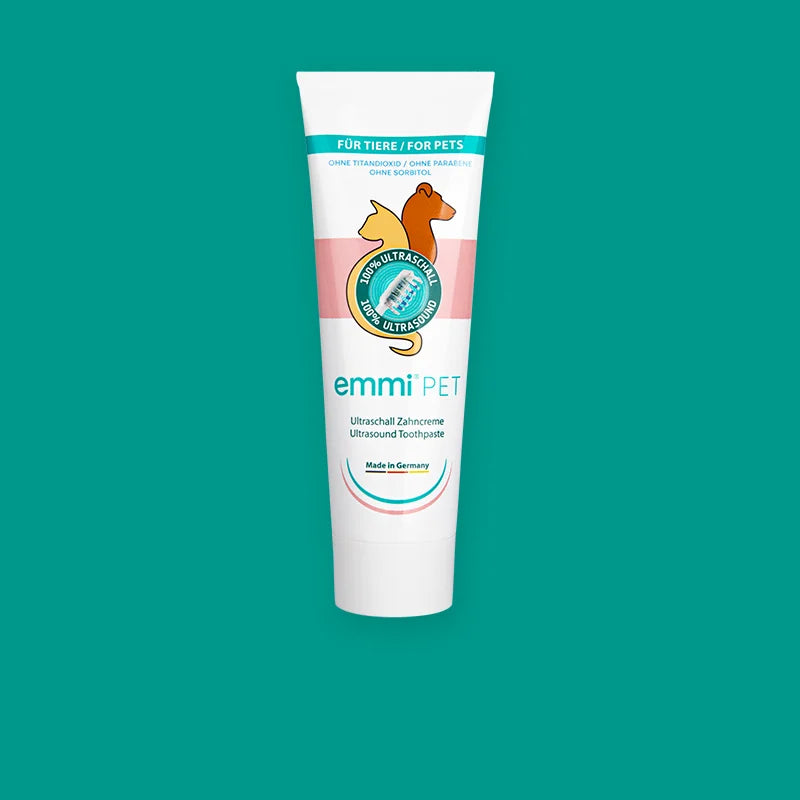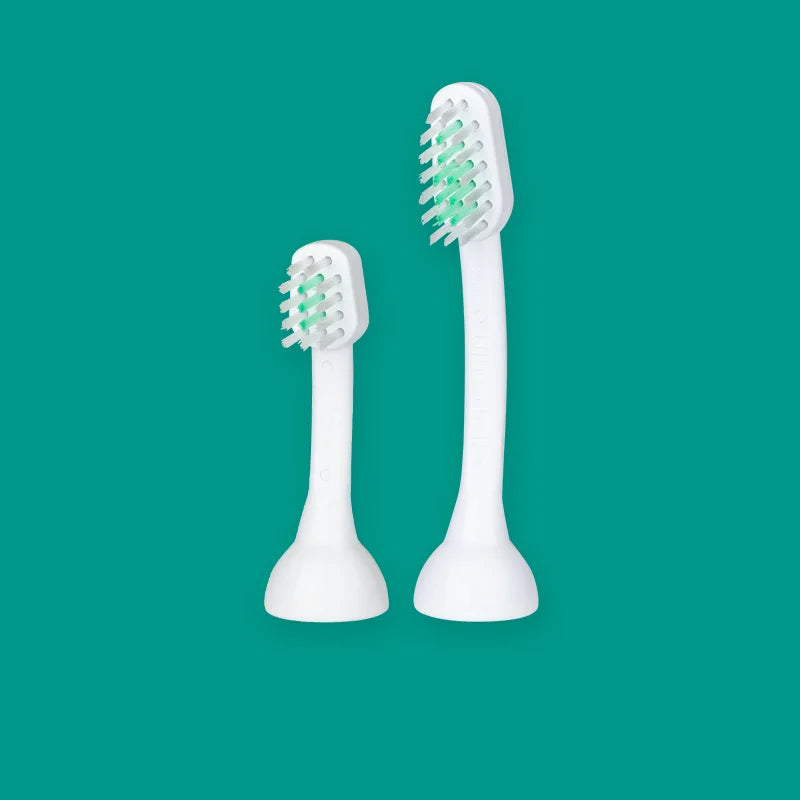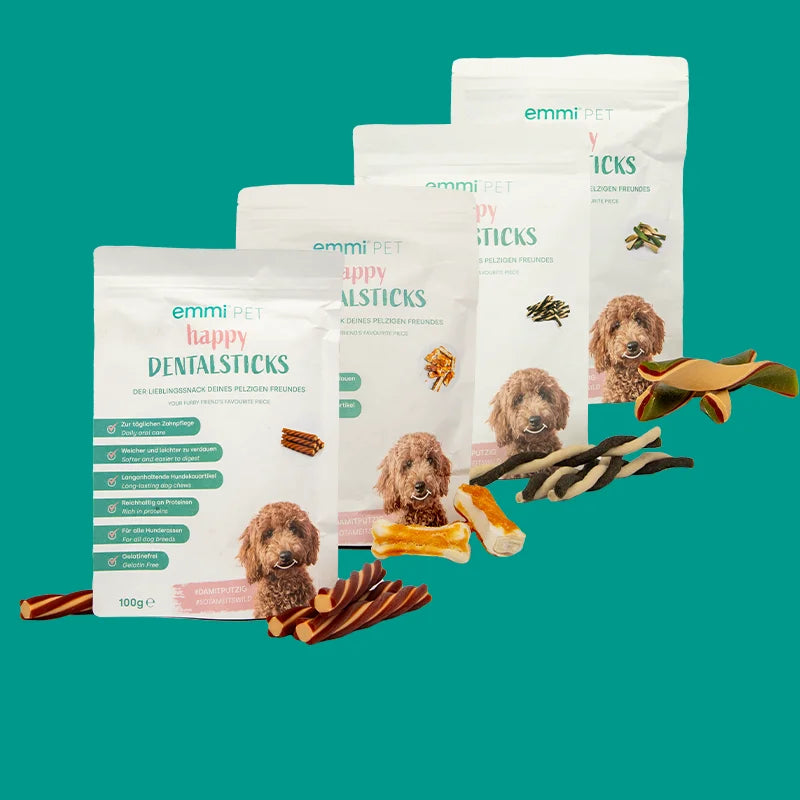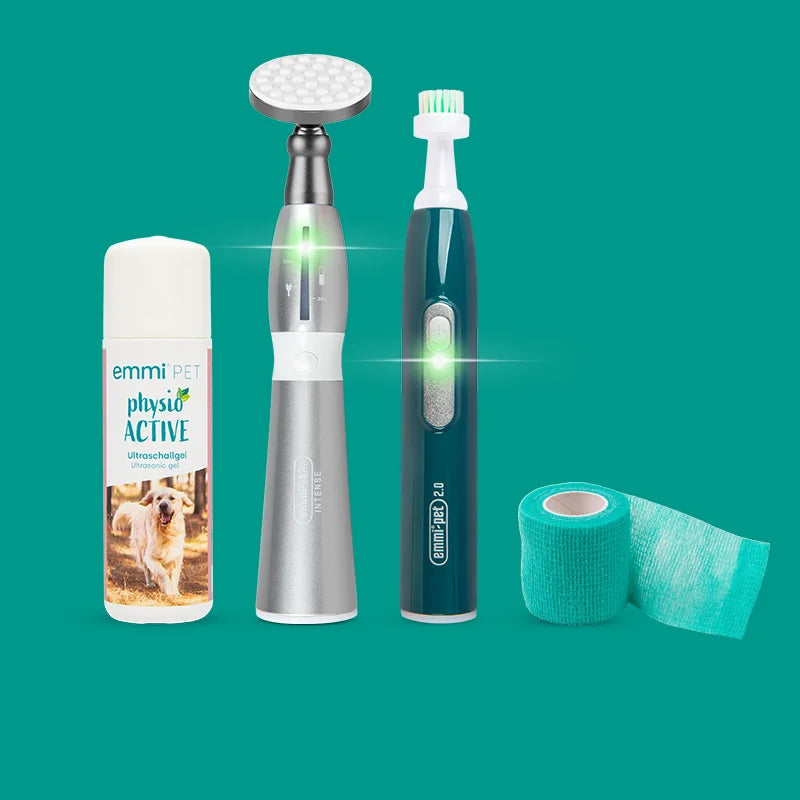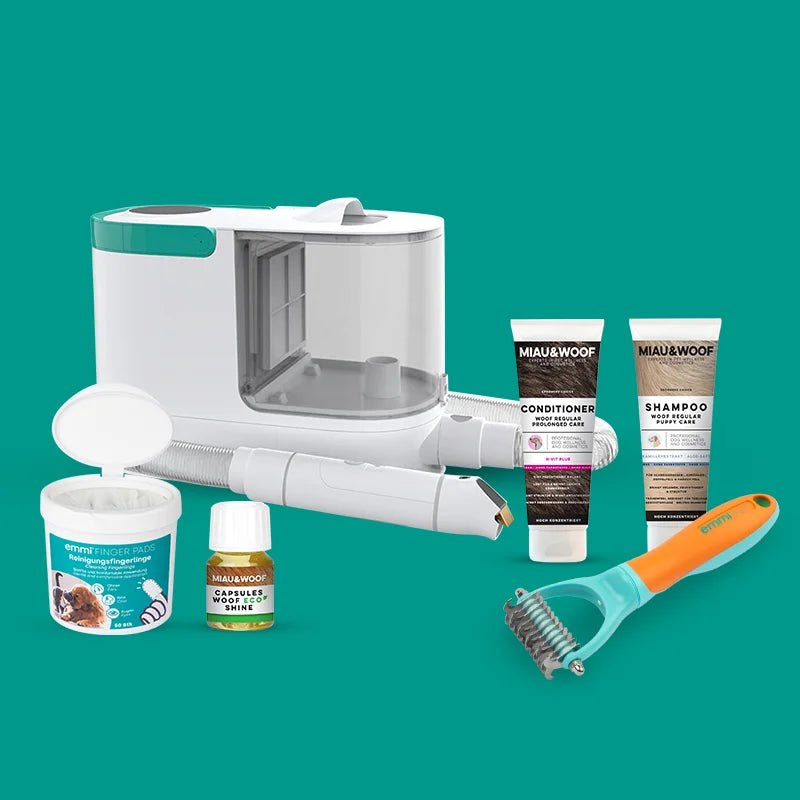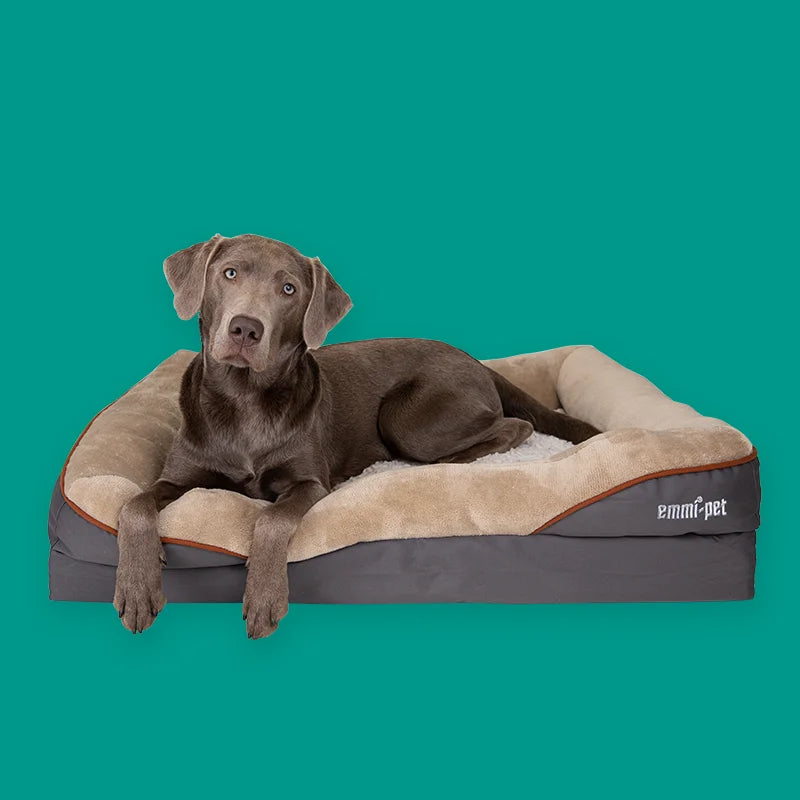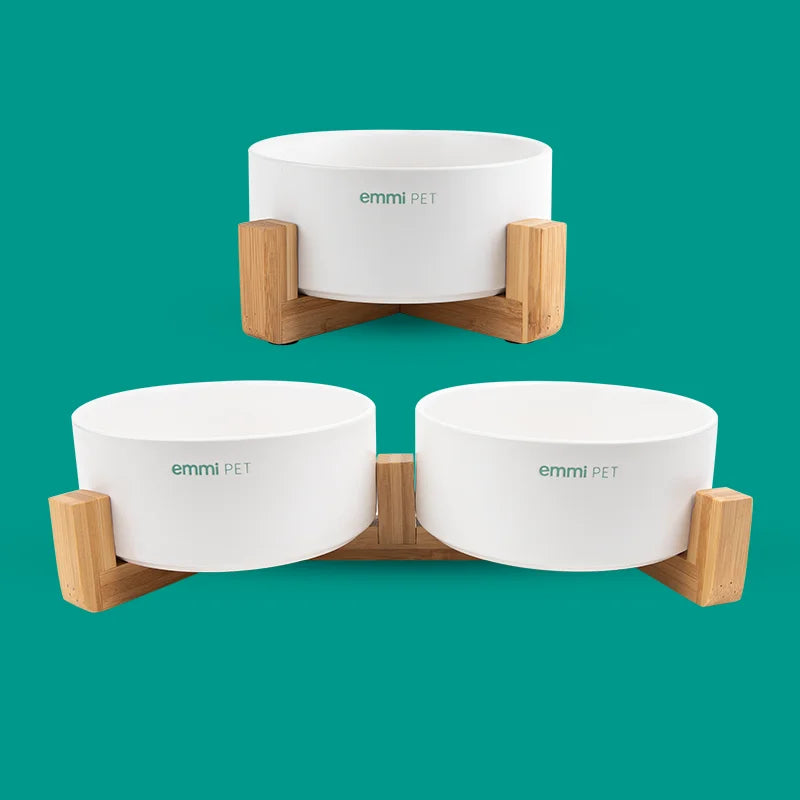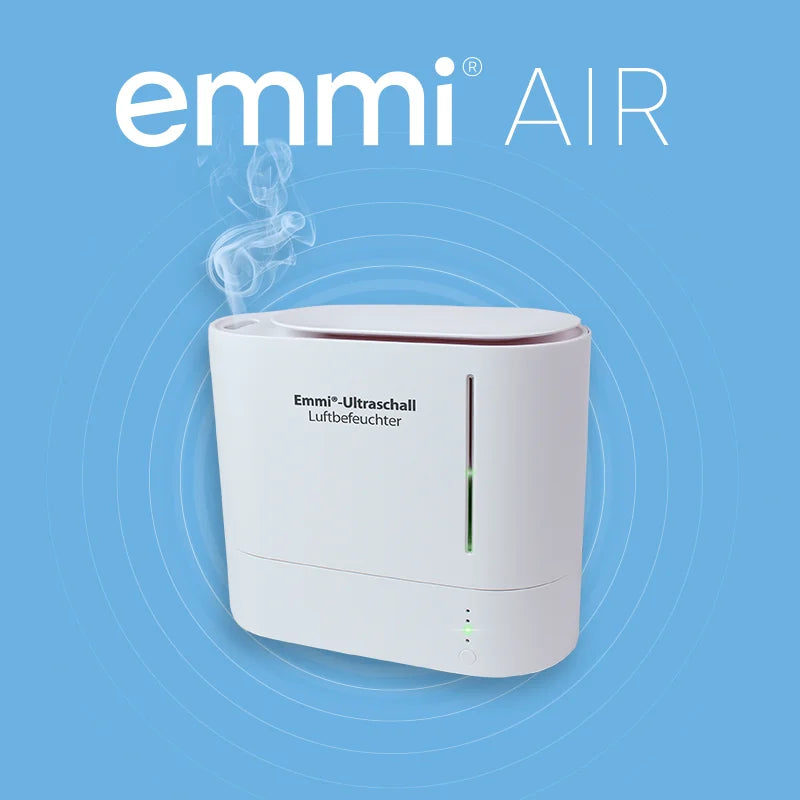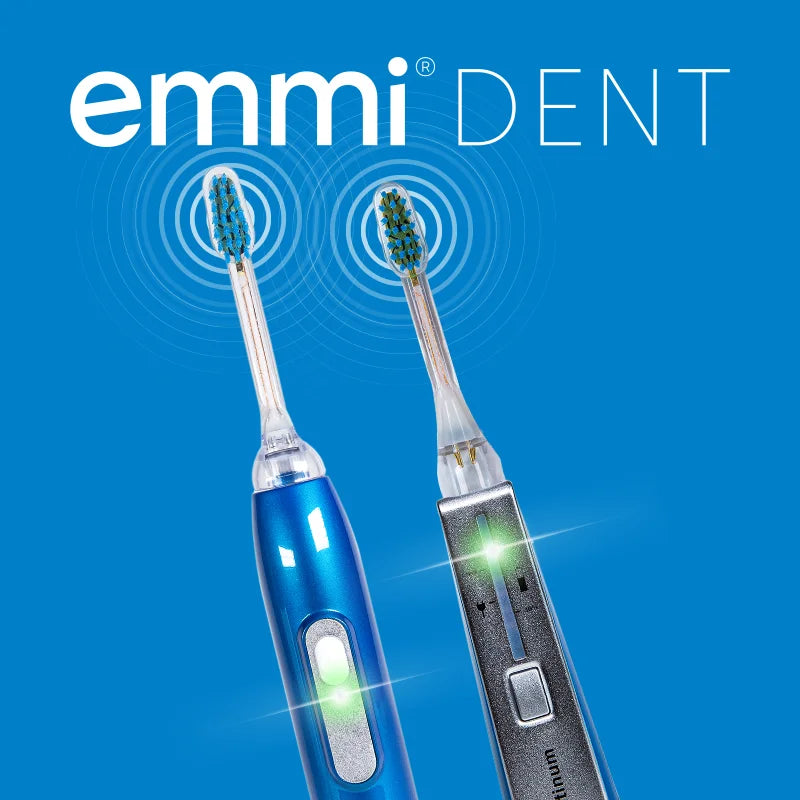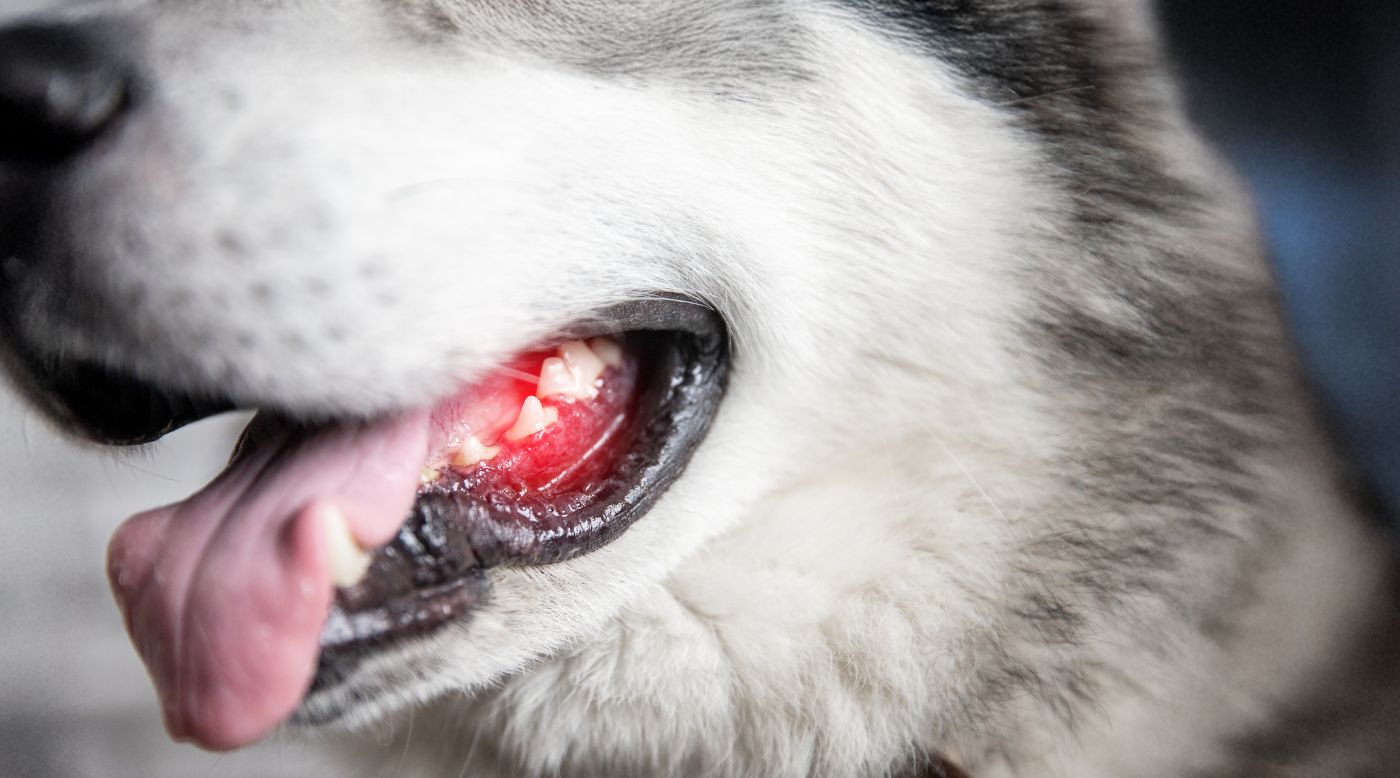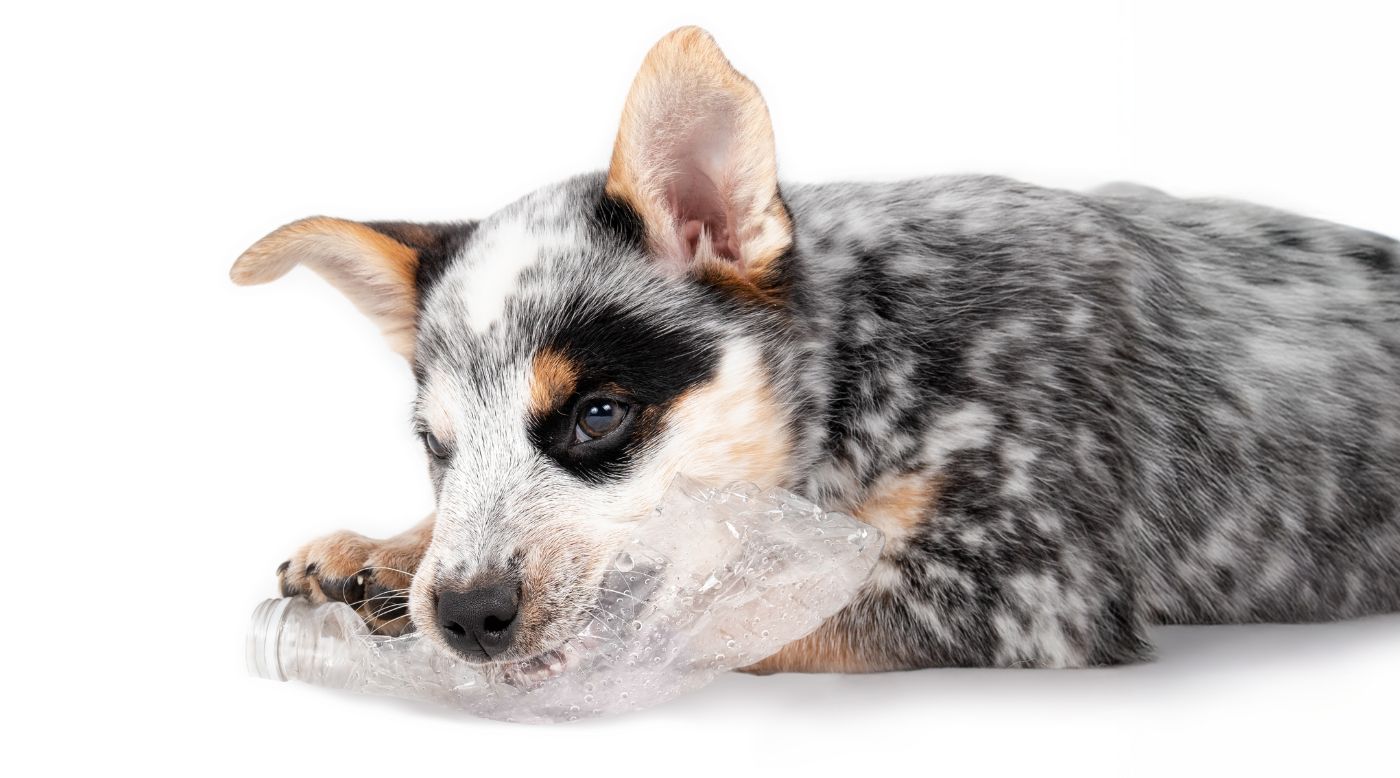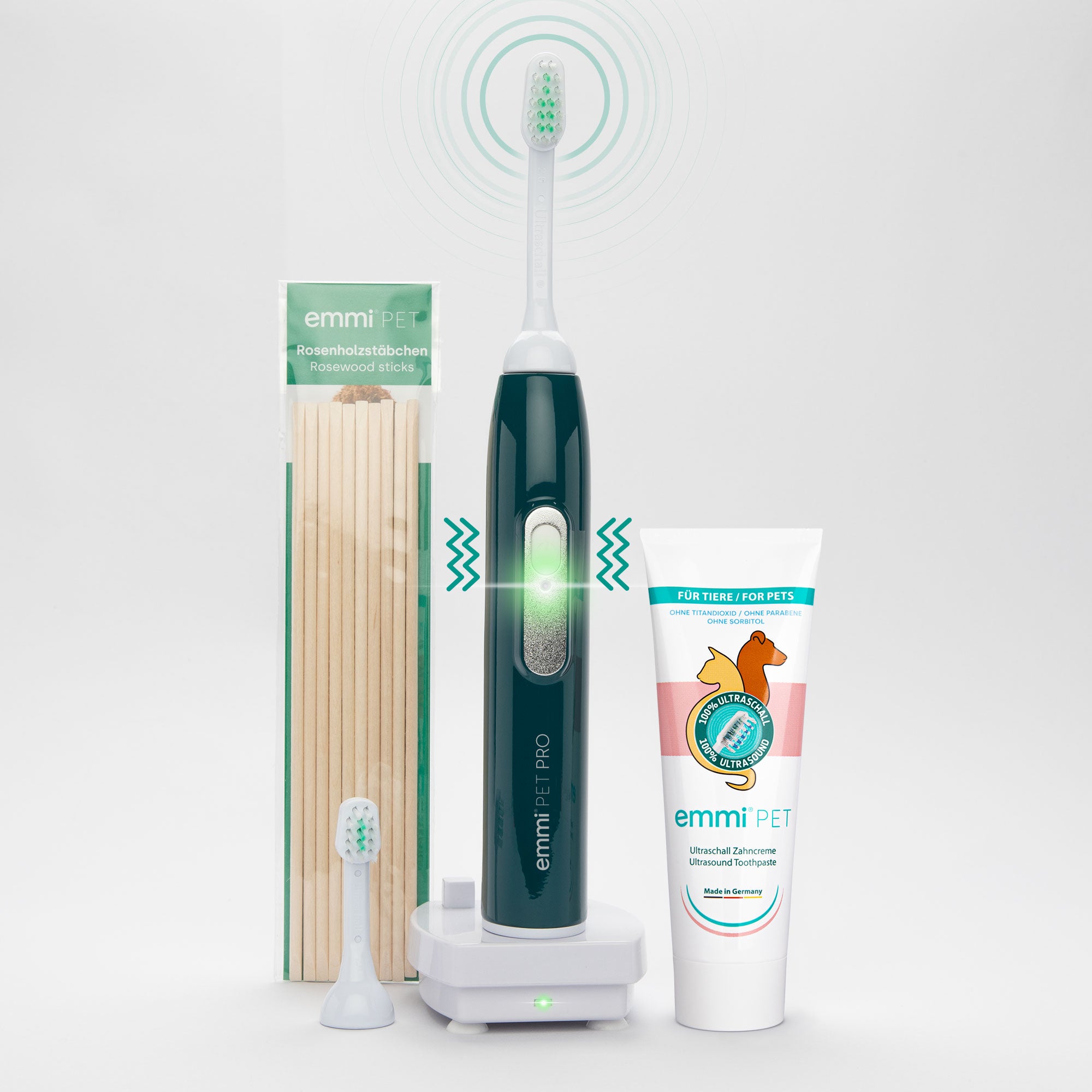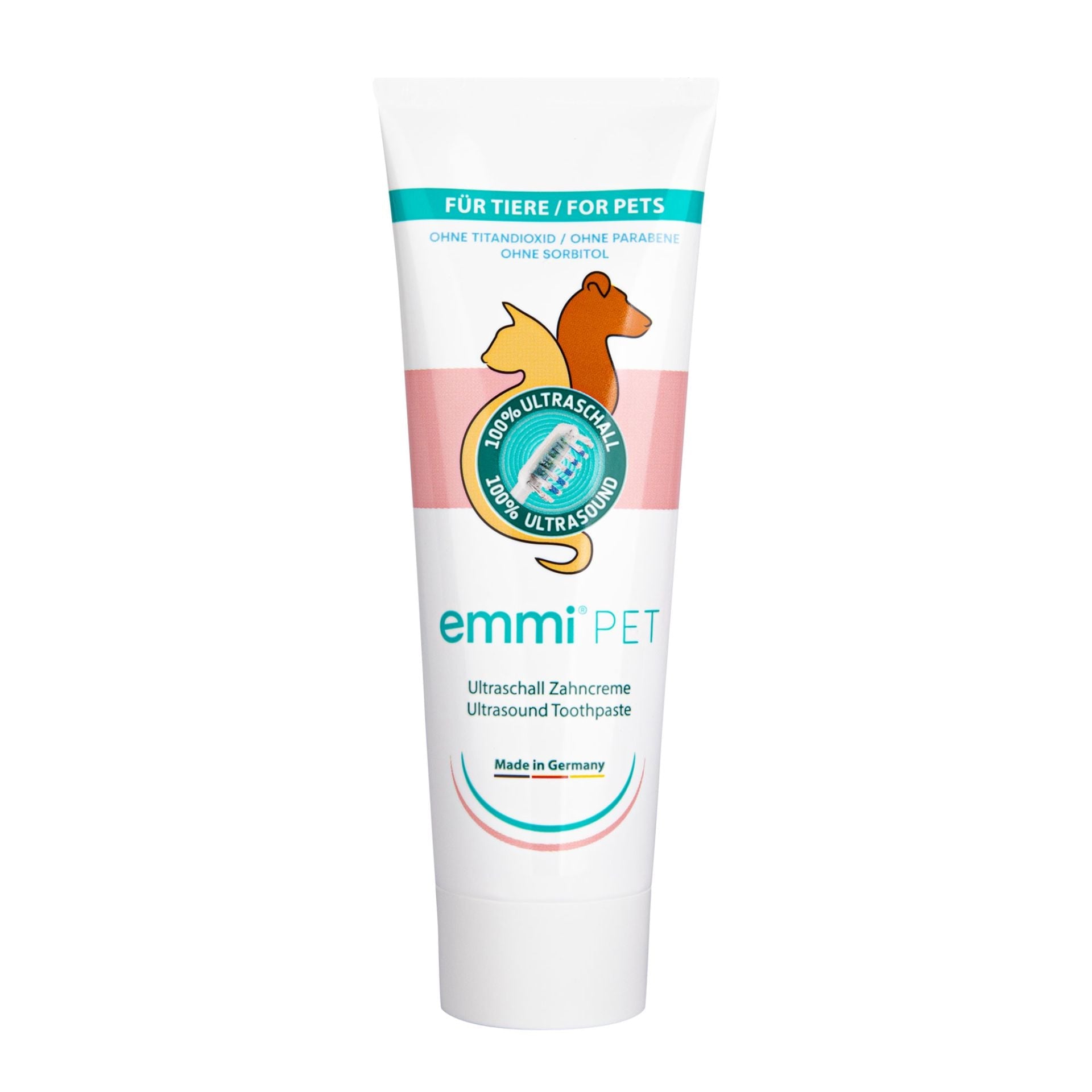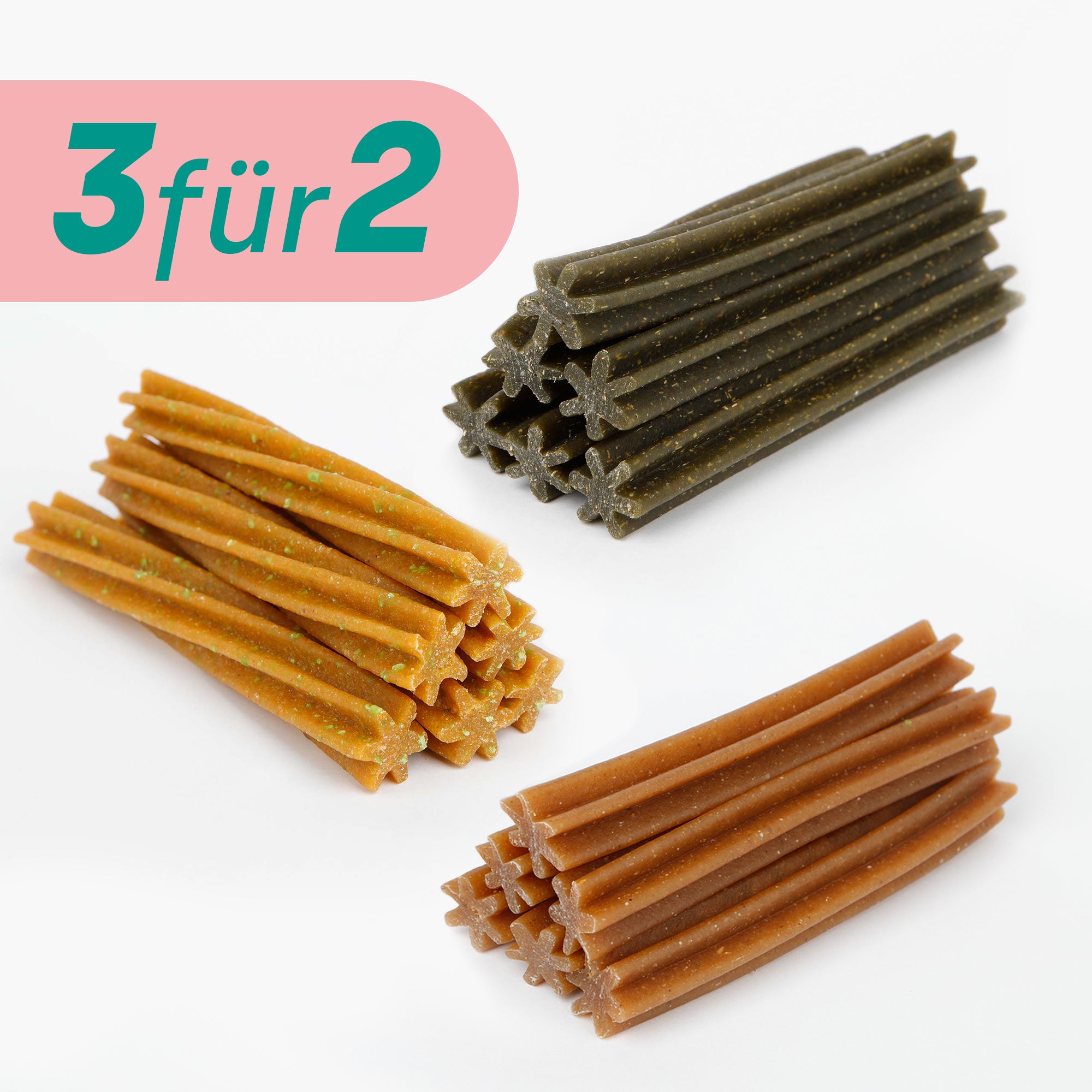It starts quietly. Perhaps with a slower pace on a walk or a look that seems a bit more tired. Your dog is getting older. A moment that triggers both sadness and concern. And while you may already be thinking about a joint-friendly diet or soft places to lie down, it's easy to forget that their teeth are also aging . This is often the beginning of a silent withdrawal that could be avoided.
Because a healthy dog's mouth is much more than just fresh breath. It protects against persistent pain, hidden inflammation, and withdrawal from everyday life . Especially from the age of seven, plaque, gum problems, and tartar become noticeably more prevalent. With loving, age-appropriate dental care, you can counteract this and help your dog eat, play, and enjoy life without worry, even in old age. In this article, I'll show you what's important now and how you can maintain your senior dog's dental health in the long term using gentle methods.
Dental health in senior dogs – What changes after the age of 7?
As your dog gets older, many things change, including in their mouth. Things that were barely noticeable before are now more noticeable: Their breath isn't as fresh, they take longer to chew, and sometimes they even leave food on the floor. These subtle signs aren't isolated incidents, but rather the first indications that their dental health is changing . Just like joints and organs, a dog's teeth require special attention as they age.
At around the age of seven, often even earlier with smaller breeds, your dog's senior phase begins. Saliva flow decreases, tooth enamel thins , and minor infections heal more slowly. Tartar forms more quickly, gums can recede, and teeth become looser. Typical problems like periodontitis, bad breath, or chewing problems increase. But this isn't an inevitable fate. With targeted, gentle care, you can actively counteract this and keep your senior dog's zest for life.
Gentle care routine for older dogs
With age, sensitivity increases, including in your dog's mouth. What used to work with playful brushing now requires more sensitivity, patience, and attentiveness. Older dogs are more sensitive to pressure, unusual movements, or cool temperatures. Therefore, it's important to adjust your dental care routine. Do it lovingly, slowly, and appropriately for your four-legged friend's age.
Instead of intensive friction and long brushing times, the rule now is short but regular intervals. Use soft brush heads , ensure a comfortable room temperature, and guide your hand gently, without force. The emotional component is particularly important; words of praise, a gentle voice, short breaks, and caresses turn dental care into a moment of trust. An ultrasonic toothbrush like our emmi-pet is ideal, as it cleans without any mechanical pressure . Even with loose teeth or sensitive gums, the brushing can be done gently and helps keep your dog healthy and pain-free as they age.
Food and snacks for strong senior teeth
What ends up in the bowl affects more than just their figure. It directly impacts your dog's dental health. Consistency, nutrient composition, and care effect play a crucial role, especially as they age. A soft, yet chewy food can relieve pressure on the mouth without neglecting the chewing muscles. Mushy wet food alone often offers too little resistance, while chunks that are too hard can cause pain if the teeth are loose.
Make sure your diet contains calcium and omega-3 fatty acids . These strengthen the gums and support the regeneration of the periodontal ligament . Fiber also stimulates saliva production , which helps reduce bacteria in the mouth . Chew sticks are especially recommended, as they specifically loosen plaque and massage the gums.
Recognize warning signs and go to a professional
Some dogs barely show when something hurts. Older dogs, in particular, often develop a silent tolerance for pain. This makes it all the more important that you consciously notice small changes in behavior or body language . Many dental problems go unnoticed at first and only cause visible symptoms later.
Therefore, pay particular attention to the following signs:
Sudden head shaking or mouth rubbing can indicate pain or a foreign body in the gums . A noticeable bad breath that suddenly appears or becomes more intense is often a sign of inflammation or tartar . Teeth grinding, smacking, or hesitation while eating indicate discomfort or pressure sensitivity in the mouth . If you notice traces of blood on a bowl, ball, or toy , you should be especially alert. Increased salivation or drooling lips are also classic warning signs.
If any of these symptoms appear, it's time for a professional checkup. Veterinarians recommend semi-annual checkups starting at age seven , or more frequently depending on the individual's dental situation. Many practices now offer special senior consultations , focusing specifically on oral health, dental status, and pain-free feeding. This way, you can identify problems early and give your dog the care he deserves in old age.
FAQ – Dental health in older dogs
Especially as your dog gets older, many questions arise: What is still normal? When does grooming begin to help, and when does it become a necessity? To help you keep an eye on your senior's dental health, you'll find the most frequently asked questions and clear answers here.
How often should I brush my senior dog's teeth?
Ideally, daily. With a gentle ultrasonic toothbrush, three to four uses per week are sufficient. They provide a deep cleaning effect, completely without mechanical pressure.
Does my dog even need dental care as he gets older?
Absolutely. Especially as we age, dental problems often creep in unnoticed and cause pain without you noticing it right away. Regular care can prevent and alleviate symptoms.
What do I do if my dog doesn't like a toothbrush?
Patience is key. Gradually introducing the new behavior, establishing positive associations with praise or treats, and using gentle products will help integrate dental care into your daily routine without stress.
Are chew sticks alone sufficient?
Chew sticks and snacks are a useful supplement, but not a substitute for, a thorough dental cleaning. They provide support when used regularly and appropriately for oral health.
When is professional teeth cleaning useful?
This is especially true when you notice tartar, inflamed gums, or a strong bad breath . A professional cleaning removes deposits that you can't reach yourself , thus protecting your dog's dental health in the long term.

